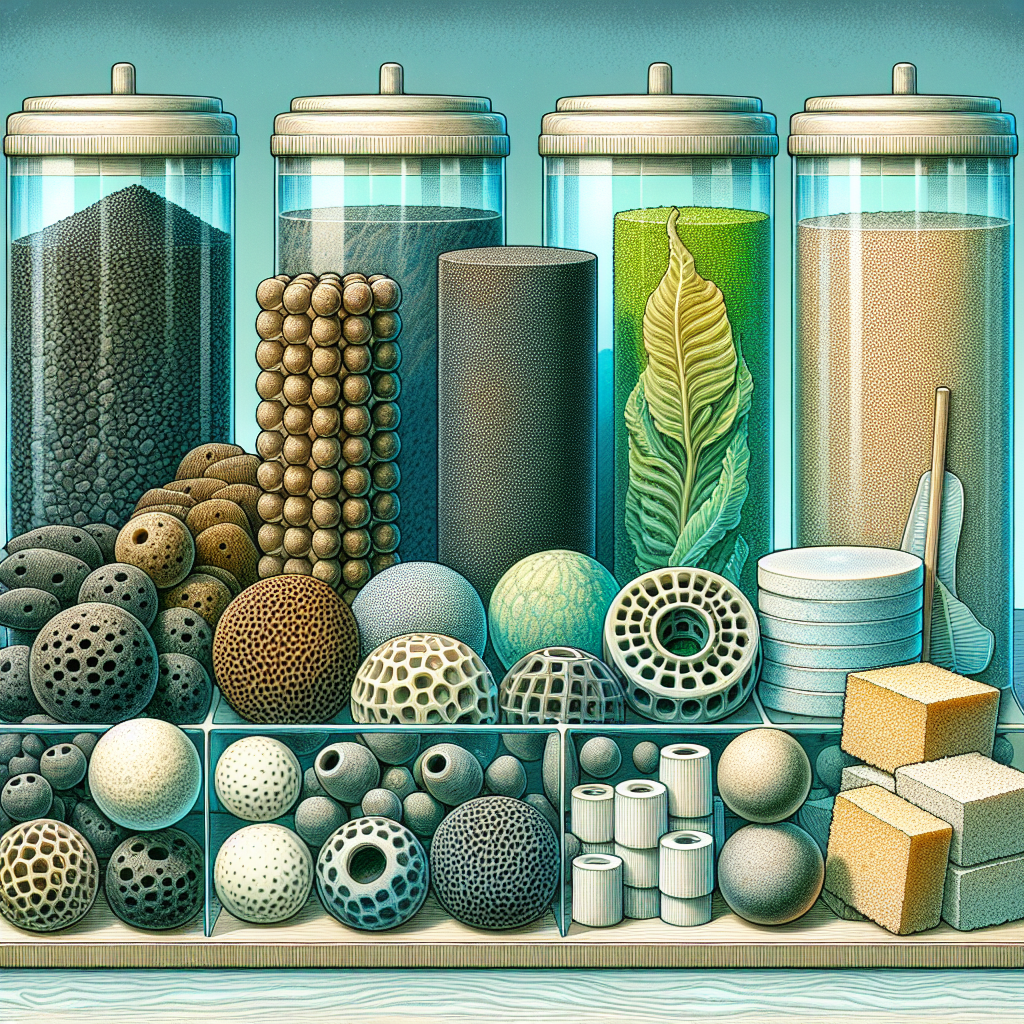Filtration Systems Explained
A healthy aquarium is not just about the colorful fish or the beautifully manicured plant life; it's largely dependent on the invisible hero of the tank: the filtration system. A robust filtration system maintains the delicate balance of water quality that aquatic life requires to flourish.
Why Filtration Matters
Filtration is a critical component in any aquatic ecosystem, serving to remove waste, toxins, and other debris from the water. In the enclosed environment of an aquarium, where pollutants can quickly build up, the choice of an efficient filtration system can mean the difference between thriving aquatic life and a tank fraught with problems.
Types of Filtration
Understanding the different types of filtration is key to choosing the right system for your aquarium. They can broadly be categorized into three primary types: mechanical, chemical, and biological.
- Mechanical Filtration: This involves physically removing particles from the water through materials like sponges or floss. It's the first line of defense against cloudy water.
- Chemical Filtration: Using substances like activated carbon, chemical filtration absorbs contaminants and clears up odors and discoloration.
- Biological Filtration: The most crucial type, biological filtration uses beneficial bacteria to convert harmful ammonia and nitrites into less toxic nitrates.
Choosing a Filter
Selecting a filter system for your tank involves considering tank size, the kind of aquatic life you have, and the level of maintenance you're willing to undertake. Here's a rundown of common filter types:
- Hang-on-Back (HOB) Filters: Versatile and easy to maintain, HOB filters are great for beginners and work well in small to medium-sized tanks.
- Canister Filters: Offering a combination of all three types of filtration, canister filters are suitable for larger tanks with a heavy bioload.
- Sponge Filters: Powered by air pumps, sponge filters provide excellent biological filtration and are a popular choice for breeding tanks or tanks with small, delicate fish.
- Undergravel Filters: These promote beneficial bacterial colonies under the gravel but may not be suitable for heavily planted tanks or tanks with burrowing fish.
Filter Media Types
The media you choose for your filter can significantly impact the quality of water and the health of your tank's inhabitants. Here's what you need to know:
- Mechanical Media: Foam pads, filter socks, and sponges are used to catch particulates, and they need to be cleaned or replaced regularly to prevent clogging.
- Chemical Media: Activated carbon, zeolite, and resin pads help remove various impurities, but they become exhausted over time and need to be replaced.
- Biological Media: Bio-balls, ceramic rings, and sintered glass provide a high surface area for beneficial bacteria to colonize and should be cleaned carefully to avoid removing these bacteria.

Maintenance Tips
To ensure your filtration system operates effectively, regular maintenance is essential. This includes:
- Cleaning Mechanical Media: Rinse sponges and pads in a bucket of tank water during water changes to remove debris without destroying beneficial bacteria.
- Replacing Chemical Media: Change out chemical filter media according to the manufacturer's instructions, usually once a month.
- Checking Biological Media: Inspect for clogging and rinse gently in tank water if necessary; never use tap water as it can contain chlorine which is harmful to bacteria.
Upgrading Your Filtration
If you're looking to enhance your aquarium's filtration, consider supplemental systems like UV sterilizers or protein skimmers for marine tanks. These not only improve water clarity but also reduce the amount of harmful pathogens and organic waste, respectively.
Best Filter Products
Ready to choose the right filter for your tank? Here's a curated selection of highly-rated filters to consider:
Filtration Fundamentals
The well-being of your aquatic pets hinges on the effectiveness of your filtration system. By understanding how various filters work and choosing the right media, you can create a clean and healthy environment for your underwater world.
For more detailed information about media filtration and its role in treating water, visit Complete Water Solutions to learn how media filtration is used in industrial water treatment systems.
Remember, an informed choice and regular maintenance will keep your aquatic friends happy and your aquarium ecosystem balanced for years to come.